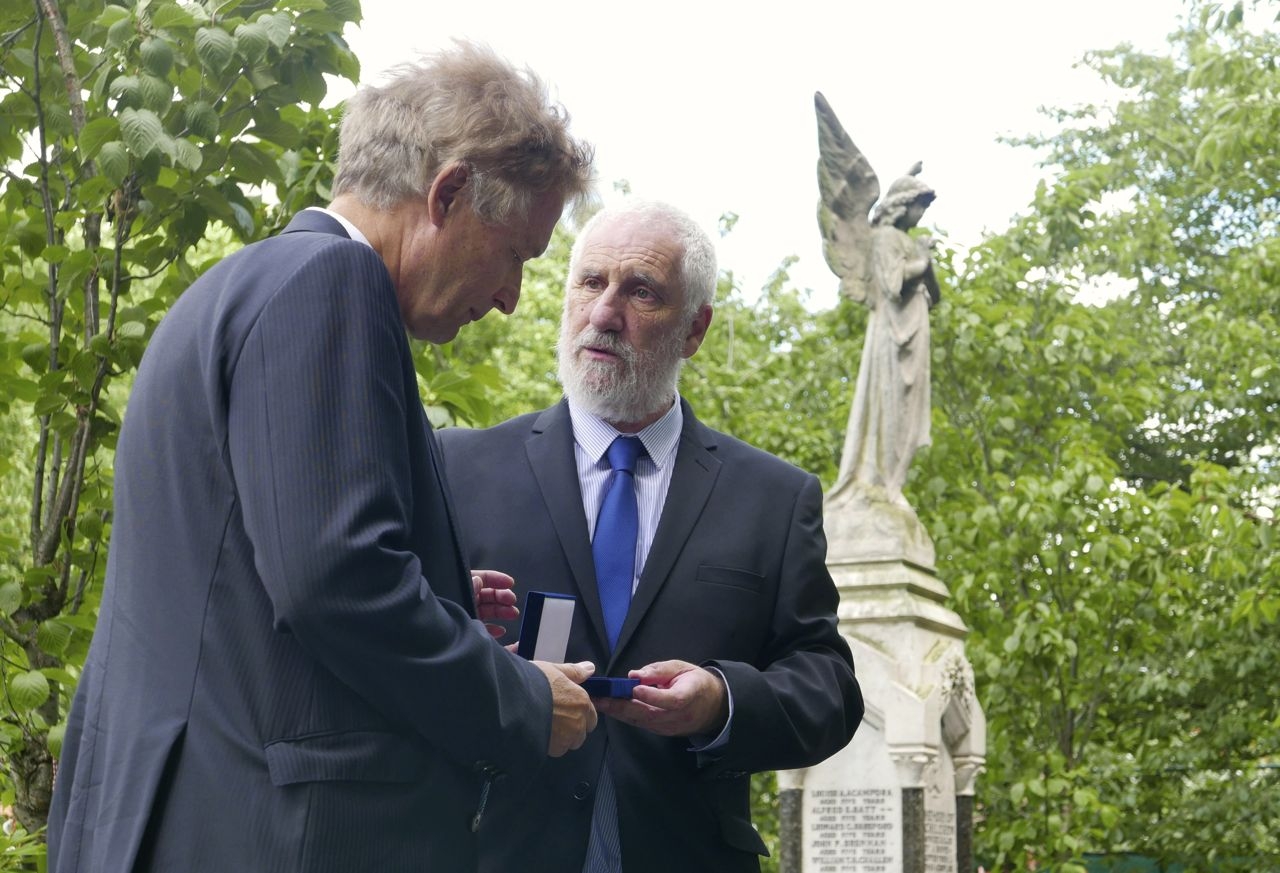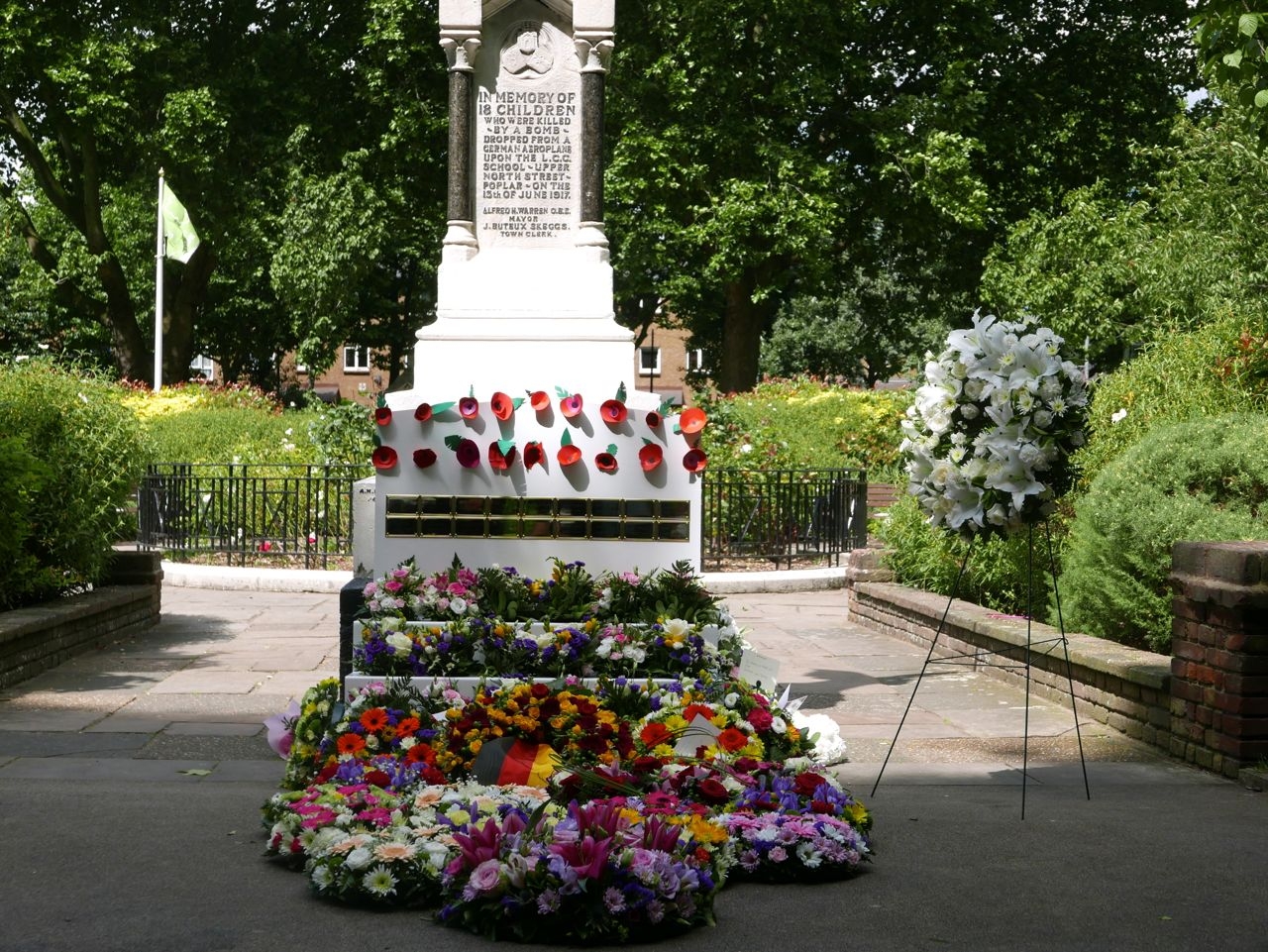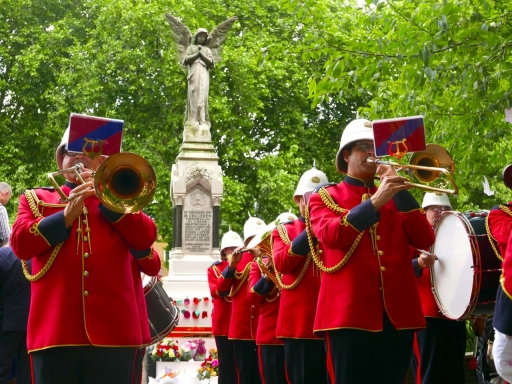Queen Elizabeth and Germany’s Ambassador to the UK attended commemorations in London on 15 June 2017 marking the centenary of a First World War air raid which left 18 schoolchildren dead.
Researchers, led by local historian Stanley Kaye, traced more than 200 descendants of those killed, inviting them to a day of remembrance events in the East End district of Poplar.
The commemorations showed that friendship could grow out of hatred and tragedy, said German Ambassador Dr Peter Ammon.
On 13 June 1917, this area in the heart of the London docklands was struck during the first daylight bombing raid on the UK capital by German planes.
A stray bomb hit Upper North Street School, plunging through several floors before exploding in the infants’ classroom. Most of the 18 children killed were aged between four and six years old.
100 years on, some of their descendants met Queen Elizabeth and the Duke of Edinburgh after a remembrance service at All Saints’ Church, Poplar. The Queen and Prince Philip also toured the present-day Mayflower Primary School which stands on the site of the 1917 attack.

Dr Peter Ammon (left), German Ambassador in London, receives a centenary commemorative medal from event organiser, Stan Kaye (Photo: Centenary News)
Dr Peter Ammon and British Government representatives later joined the relatives in laying wreaths at a nearby memorial to the children erected by public subscription after the Great War.
“Let this remembrance be reason enough for us and our political leaders to continue to work hard to promote peace and friendship,” the German Ambassador said.
“We should not give up trying to overcome divisions between people today, however hard and impossible it seems to be.
“Today the UK and Germany are close friends, close partners and we will remain so despite our diverging perspectives on Europe.
“Remembrance of the tragic events of 100 years ago defines our present and our future. So one lesson we Germans have learned is we should not be careless with our memories,” Dr Ammon continued.
“Laying flowers at the ‘Angel’ memorial today, we think of the 18 children who lost their lives and the families they left behind, as well as all those who were affected or suffered as a result of the attack.”

Wreaths laid at the memorial to the children in Poplar Recreation Ground, unveiled in 1919 following a public appeal (Photo: Centenary News)
In all, more than 100 people were killed, and 400 others injured, in the June 1917 air raid on London. The attack provoked outrage. For the first time, Germany’s new Gotha bomber aircraft had succeeded in reaching the city. Britain had already faced more than two years of attacks by airships, notably Zeppelins.
Also in Centenary News:
First German airship shot down over UK, September 1916.
Reporting from Poplar by CN Editor, Peter Alhadeff
Photos: Centenary News
